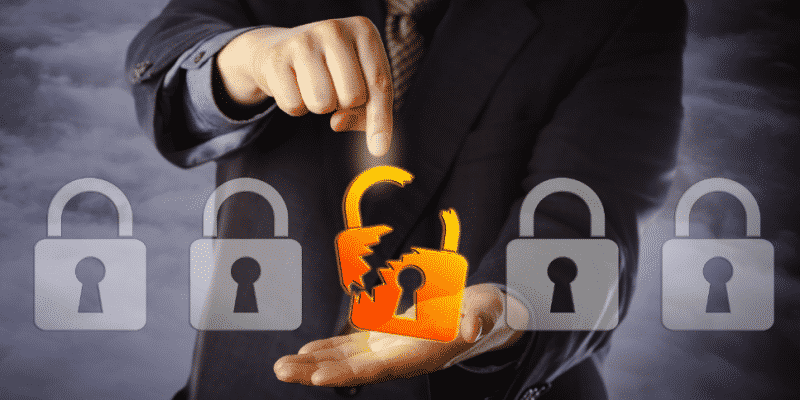Hearing of large data leaks on the news has become commonplace in our new digital age. With so much reliance on the internet, the world wide web has become the new wild west when it comes to unscrupulous characters that seem to be up to no good.
But did you know that small business owners are particularly vulnerable to cyber-attacks?
The lack of size, business cybersecurity infrastructure, and restrictions on a budget means that most hackers prefer to spend their time on this low-hanging fruit, rather than go after the big prizes.
So what can you do about it? Read on to find out our 4 clear tactics that any small business owner should implement today if they want to ward off any potential cyber-attacks.
Contents
1. Regular Software Updates
The easiest way for your business to experience a security breach is by not updating your software regularly. While most people see them as just annoying pop-ups, they are a vital addition to any cybersecurity checklist.
The longer a piece of software is being used, the higher possibility there is of hackers finding vulnerabilities. Updates to existing software counteract this by working plugging in any of these holes as time goes by. This applies to mobile phones too, so remember to remind employees to update their company phones.
One last thing. Hardware like your router may also need manually updating, so don’t just rely on pop-ups. Being proactive is the best way to ensure good business cybersecurity.
2. Don’t Forget to Backup
Dealing with corrupted or lost files is an easy way to ruin any business, especially today. Fortunately, cybersecurity best practice has seeped into common sense as we venture deeper into the digital age, and most small businesses see the value of having at least daily online cloud cover.
That being said, having another layer to cover your back should the worst happen is also a good idea. Consider alternative options like having a hard copy on an external drive. Now more than ever, it is your responsibility as a small business to be responsible for the data that you possess.
3. Train Your Employees
The effectiveness of phishing emails is a clear example of why the weakest point of any business is nearly always an employee doing something they shouldn’t.
Nip this danger in the bud by making sure that your staff not only know of the importance of cybersecurity for business but also have clear in mind the best practices.
This however can’t be a one-off training session. As the types of attacks and tactics change, invest in making sure that your team is up to speed.
4. Have Good Password Safety
Staying on the topic of employees, another essential tactic to keep your business safe is the use of strong and secure passwords.
While it may be difficult to keep track of changes made, there are countless apps that are able to keep records of any passwords changes. Making use of them will stop employees from committing the cardinal sin of writing them down in a notebook kept in a draw on their desk.
So what is a good password? Companies like 4bis.com encourage people to aim for anything between 10 to 20 characters including upper and lowercase letters along with symbols and numbers. Passwords like this and changed regularly should be enough to keep criminals at bay.
Business Cybersecurity: A Priority Now and Into the Future
Rather than leave it to the last minute, take decisive action now on your business cybersecurity if you want to experience peace of mind as a business owner.
We hope our insights will help you achieve just that.
Check out the rest of our great tech content for more pointers on the latest technology to implement into your business.
